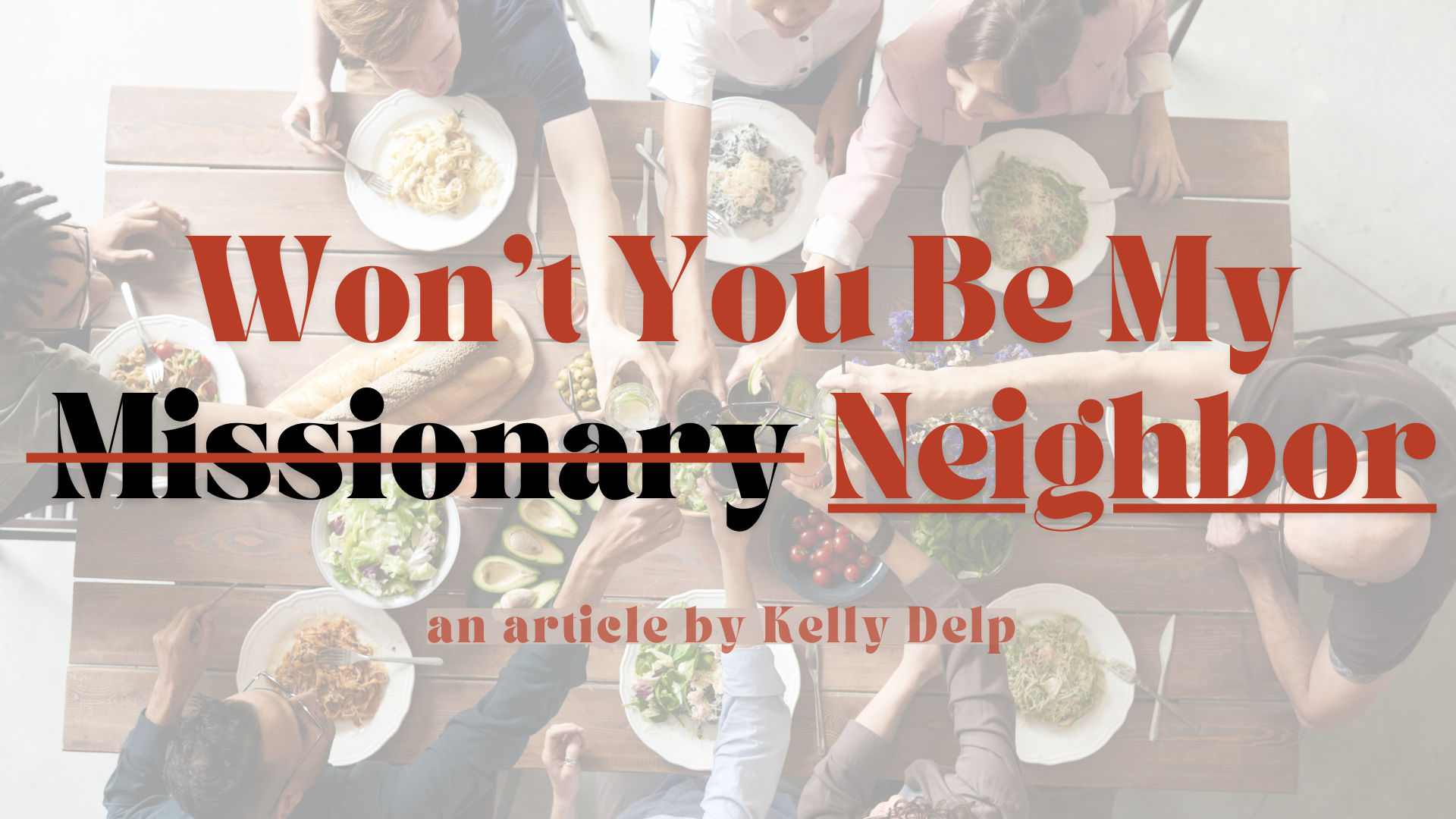Since resigning from my missionary appointment about a year ago (which proved my suspicion that the only truly honorable discharge from missions is getting married, but that’s for another article!), I’ve had lots of time to reflect on evangelical culture around missions. There are a few things, as a missionary, one can expect at many churches during fundraising seasons. The pastor will invite you to a local Mexican restaurant for lunch (honestly, couldn’t get enough of it), and, at some point during the service, the pastor will tell their congregation that we are *all* missionaries.
For some reason, all these years, that phrase has struck me the wrong way. Now that I’m on ‘the other side,’ I think I’ve figured out why.
Existing in your neighborhood, encountering the people who live near you, the cashiers at the grocery store, the baristas at Starbucks, and the tellers at the bank isn’t being a missionary – it’s being a neighbor. Calling ourselves a missionary to people in the same culture as we are, who live in the same neighborhood, and whose lives are similar to ours creates a mindset that takes us out from among them. It cloisters us in a way we were never meant to live.
If there is any stronger evidence that we have elevated certain callings to “peak Christianity” than this, I don’t know what it would be. To be a missionary is a noble calling, to be a neighbor feels boring and mundane.
Jesus had a lot to say about being a neighbor. On several occasions, Jesus quotes the law and affirms that one of the greatest commandments is to love our neighbors. Scripture describes Jesus as “set apart,” yet Jesus was known for participating in neighborly life. He enjoyed picnics on the beach with his friends, he drank wine with people who sinned in every way a person can sin. He came to seek and to save, but it wasn’t by secluding himself in the synagogue or limiting his social circles. He was radically inclusive. He had time for everyone. Scripture says He enjoyed a friendship with people like Mary and Martha and the disciples.
Being a neighbor means we engage in mutual friendship with those we encounter in everyday life. It means seeing people, not as evangelistic opportunities, but as people who contribute to good in our own lives. It means being fully present in the place God has set us and among the people, He has surrounded us with.

I recently had the opportunity to travel back to Paris to officiate a wedding and was able to visit with some of the people from the church I pastored there. At lunch one day, I sat with a woman who had become a believer at the church. I mentioned something about being done as a missionary, and she replied, “Oh where were you a missionary to?” I laughed as I informed her it was Paris. I was a missionary to Paris, but to her, I was a neighbor.
I am no longer a missionary. When I was a missionary, part of my work was to integrate into a culture very different than mine. I bid goodbye to my family and friends. I have friends whose children see their grandparents once every few years, who have learned more than one language to fulfill their calling, and who have had to flee at a moment’s notice without their belongings. But I can tell you that the highest goal of being a missionary is to become a neighbor. To integrate into a new place and people and to engage in real, meaningful friendship. To serve – and to allow others to contribute to your life as well.
Whatever your calling – missionary or music teacher, pastor or politician, stay-at-home parent or service worker, we must fully lean into our roles as neighbors. None of us are meant to live sanitized, secluded Christian lives in the midst of our world. We’re meant to be bringers of peace and hope to the world around us, and that starts with how we see ourselves. Not as missionaries, but as neighbors.






